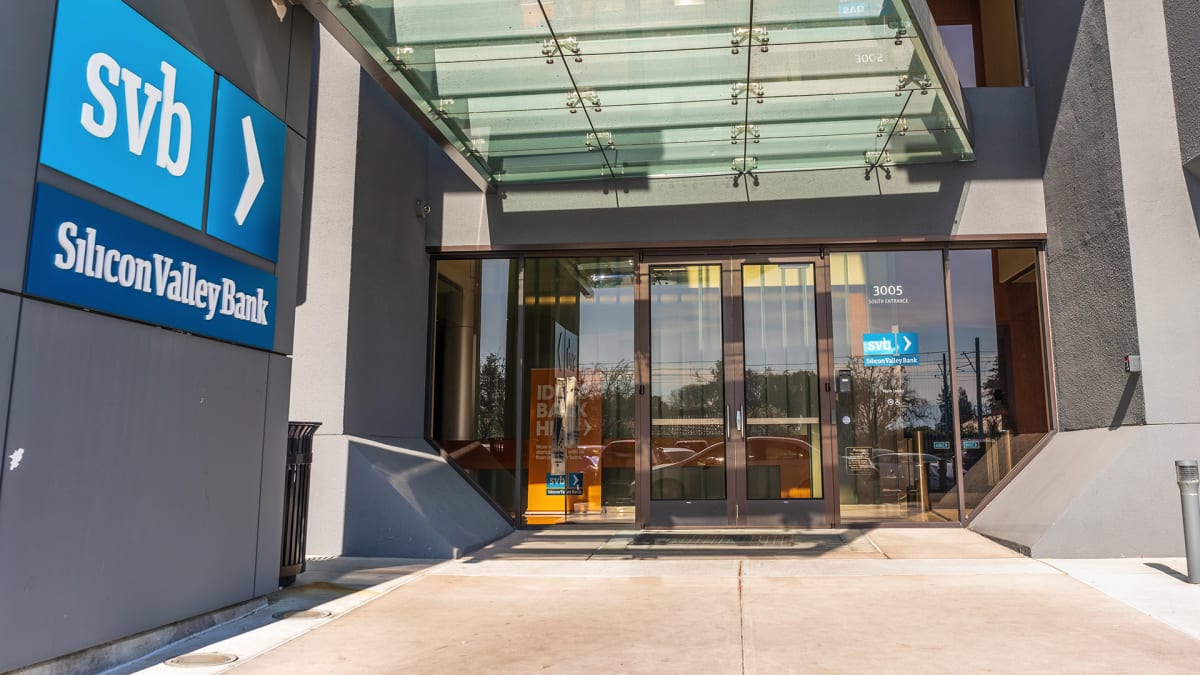
Startup companies that had Silicon Valley Bank accounts with more than the $250,000 maximum insured by the FDIC have become unsecured depositors, banking experts said.
The majority of account holders at SVB, which on Friday was shut down by regulators and taken over by the FDIC, had balances that exceed $250,000, Gary Zimmerman, chief executive of MaxMyInterest, the New York financial-technology company, told TheStreet.
DON'T MISS: Bank Run Fears in Silicon Valley Shake Global Markets
"Silicon Valley Bank had an overwhelming market share of venture-capital firms and portfolio companies," he said. The account holders at SVB are unsecured depositors and will be given receiver certificates, Zimmerman said.
The FDIC said in a statement on Friday that it will "pay uninsured depositors an advance dividend within the next week.
"Uninsured depositors will receive a receivership certificate for the remaining amount of their uninsured funds," the agency said. "As the FDIC sells the assets of Silicon Valley Bank, future dividend payments may be made to uninsured depositors."
Venture-backed portfolio companies could find themselves with liquidity issues and the outcome is uncertain, depending on whether SVB is acquired by another bank, he said.
"This is largely a self-inflicted injury," Zimmerman said. "The issues faced by SVB are pretty specific to them. This does not appear to be a systemic issue."
FDIC Is Silicon Valley Bank Receiver
The FDIC declined to comment, but referred to its statement that customers whose accounts are in excess of $250,000 should contact the agency at +1-866-799-0959.
The FDIC is the receiver of Silicon Valley Bank and will retain all the assets from SVB "for later disposition," the agency said.
The FDIC said on Friday it would take over Silicon Valley Bank (SIVB) and created the Deposit Insurance National Bank of Santa Clara.
Whether companies will receive 100% of their account balances or only a percentage remains unknown, said Anthony Chan, former economist for J.P. Morgan Chase, told TheStreet.
"It does not mean people above that $250,000 level will lose all their money," he said. "It is not a clear destruction of all deposits."
It is possible that some depositors will be "made whole" and receive 100% of their deposits, Chan said.
"The government moved in to shut down the bank, so there is potential for residual money," he said. "I would suspect that the government moved in quick enough that the total destruction will be minimized. The losses are contained and it is too early to say this is a systemic meltdown."
The FDIC said all deposits are to be transferred over to the new bank and access to the accounts will be available by March 13, the agency said. SVB had $209 billion of total assets and about $175.4 billion in total deposits as of Dec. 31, 2022.
The FDIC said the amount of deposits in excess of the insurance limits was undetermined.
"The amount of uninsured deposits will be determined once the FDIC obtains additional information from the bank and customers," the regulatory agency said in a statement.
Liquidity Crunch at SVB
Shares were halted by officials on the Nasdaq Friday following a liquidity crunch that triggered an emergency capital increase and raised concern about the value of billions in Treasury bonds held in bank portfolios around the country.
The bank lost $1.8 billion in part by losses in a $21 billion Treasury bond portfolio.
Silicon Valley Bank failed after launching on Oct. 17, 1983. Thousands of startups banked at SVB over its nearly 40-year tenure, providing a place to store their deposits, make payroll and obtain loans to finance the growth of their companies.
SVB's main office and all 17 branches in California and Massachusetts will also be open on March 13. Online banking and other services will also be available on Monday.
"Silicon Valley Bank’s official checks will continue to clear," the FDIC said.
SVB is the first bank to fail in 2023. Almena State Bank, Almena, Kan., was the most recent FDIC-insured institution to close, on Oct. 23, 2020.







